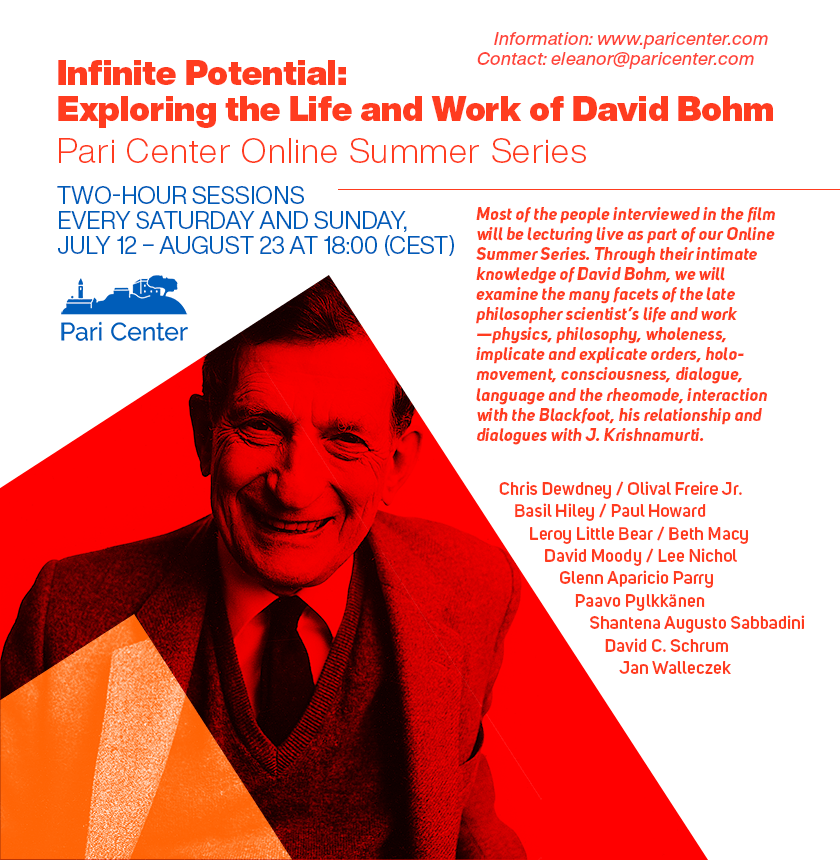Your cart is currently empty!

Insight and Illusion in Bohmian Psychology
- This event has passed.
August 8, 2020 @ 6:00 pm – 8:00 pm CEST

Buy the recording
Insight and Illusion in Bohmian Psychology
with David Moody
August 8 at 18:00 (CEST) for a 2-hour live session
David Bohm is known primarily for his work in physics and cosmology, but his contributions to the field of psychology were equally profound and significant. His understanding of the nature and dynamic structure of consciousness, and their relevance to the ordinary affairs of daily life, had several sources. His views were shaped in part by his experience with members of the scientific community and his disillusionment with their independence of mind and objectivity. He also drew upon the work of Hegel and Piaget, among others. The greatest influence upon his outlook on psychology, however, was the philosophy of J. Krishnamurti, and the quarter-century of dialogue and collaboration between the two men.
In Bohm’s approach to psychology, the role of thought occupies a central position in consciousness, including our common misconceptions about thought and the illusions that thought generates. The remedy for these illusions is insight, which represents a form of seeing or intelligence that transcends the limitations of thought. These views closely parallel those of Krishnamurti, but Bohm expressed them with his own gift for language and colourful metaphors. In this presentation, we will examine the basic elements of Bohmian psychology with special reference to the work of Krishnamurti and the nature and quality of the relationship between the two men.

David Edmund Moody, PhD author and educator
David Edmund Moody, PhD, is the author of An Uncommon Collaboration: David Bohm and J. Krishnamurti. He worked closely with Bohm and Krishnamurti in his capacity as director of the Oak Grove School, founded by Krishnamurti in Ojai, California, in 1975. Moody’s relationship with the two men is described in his previous book, The Unconditioned Mind: J. Krishnamurti and the Oak Grove School.
Moody is currently completing a biography of Krishnamurti that presents his philosophy in a new light. Krishnamurti in America: New Perspectives on the Man and His Message is scheduled for publication in October 2019.
Moody facilitated a series of seminars conducted by Bohm at Oak Grove School, in which Bohm described his views on consciousness and the human condition. He conducted several recorded dialogues with Bohm, three of which are included as appendixes in An Uncommon Collaboration.
He took his PhD in education at UCLA in 1991. His doctoral research investigated the logical structure of high school biology textbooks and their effects on student understanding of the theory of evolution. Moody is the author of numerous articles in popular and professional journals on topics related to biology and science education, including Gaia theory and the development of a curriculum based on the cultivation of insight.
